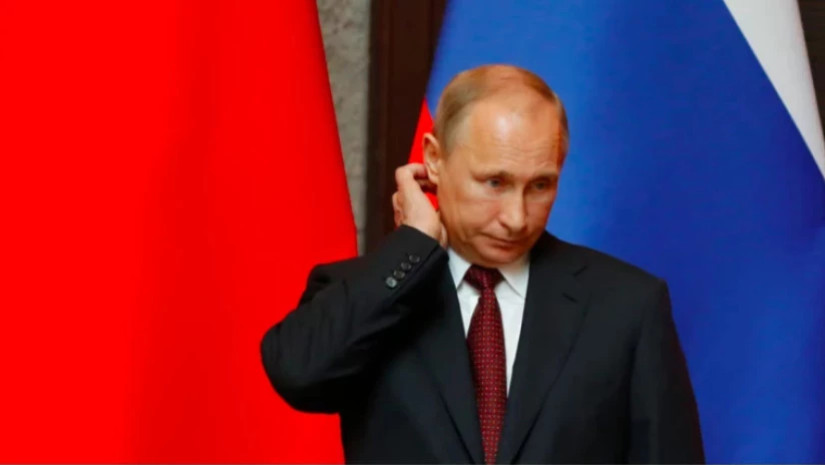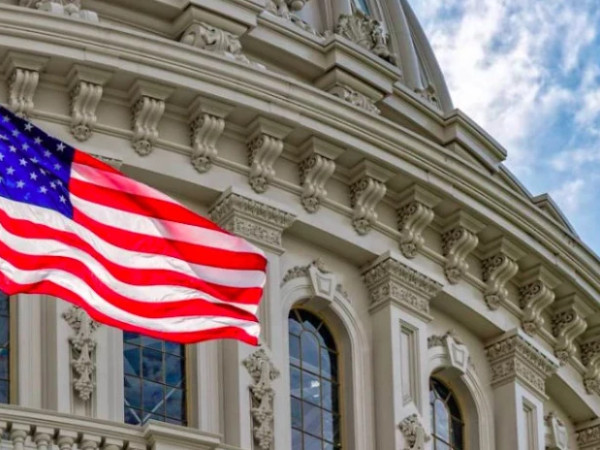Three years after launching his “special military operation” in Ukraine, Russian President Vladimir Putin faces a looming choice. In public, he exudes optimism. He has pulled his country back from the abyss and, with military means, defended its sovereignty, or rather what he calls sovereignty. Had he not done so, he asserts, Russia would have ceased to exist. Meanwhile, Russia’s GDP is growing—it increased by around four percent in 2024, according to official figures— and wages are not only rising but also apparently keeping up with prices despite an annual inflation rate now running at more than nine percent. Behind this façade, the military budget has doubled in three years and growth is overwhelmingly being driven by the military economy; the consumer sector, where inflation is even higher, is stagnant.
Yet so far it all seems tolerable to ordinary Russians. The Kremlin has gained further control over society, even as it allows several aspects of private life to continue undisturbed. And the war, though its costs keep going up, is apparently going Russia’s way: by Putin’s telling, Russian forces “liberated” at least 189 settlements in Ukraine in 2024, and Western air defenses have no chance against Russia’s newest missile. The population shows signs of war fatigue, but in general all the happy reports of military successes are taken for granted: according to survey data from the independent Levada Center, performative or genuine support for the special operation has plateaued at around 75 percent of the population, including 45 percent who say they are definitely in favor of military action and 30 percent somewhat in favor. (Although more than a third of Russians also say that the return to the White House of Donald Trump, who has vowed to quickly end the war, might be good for Russia, even more think it will make no difference.)
But in reality, all is not well as Russia enters the new year. In using hard power, Putin has lost soft power. By trying to rebuild the Russian empire, he is losing Russian influence over its former territories. In seeking to increase the distance between Russia’s borders and NATO, he has brought about the opposite: the transatlantic alliance is now, as the Kremlin darkly warns, “at the gates.” The home front is equally unsettled. The economy is structured more and more in a war- and state-skewed way, with the central bank’s punishingly high benchmark interest rate of 21 percent—necessary to control inflation—driving some businesses to the brink of bankruptcy. By prioritizing security, the Kremlin has made Russians less safe: for many, daily life now consists of either waiting for an enemy drone to arrive or, for those who are against the war, for a decisive knock on the door by the authorities. Social mores have been corroded by the banalization of violence, and patriotism is now seen as the willingness to sell oneself to the trenches for an ever-higher price, in the form of lavish enlistment bonuses and salaries. The censorship that destroyed Russia’s independent news media has gradually spread into education, theater, film, book publishing, and even museum politics. Entire social groups are being stigmatized and persecuted, from migrants and civic activists to scholars and intellectuals, who are now often designated as “foreign agents.” Comparisons with his Soviet predecessors do not redound in Putin’s favor: the post–Stalinist Soviet Union was proud of Sputnik; Putin’s Russia is proud of Oreshnik, its latest hypersonic missile.
A still larger problem is the future. Having brought the country this far, it is unclear that Putin and his team can go back. Demilitarizing the economy and demobilizing the public would risk undermining the system that sustains his rule. Even as the costs keep going up, Putin needs a permanent war to preserve what pro-government sociologists call “the Donbas consensus”—the majority of Russians who support military action and the Kremlin’s increasingly personalist approach to power. Here, then, is the dilemma that Putin faces in 2025: ending the war would be just as dangerous as waging it.


















